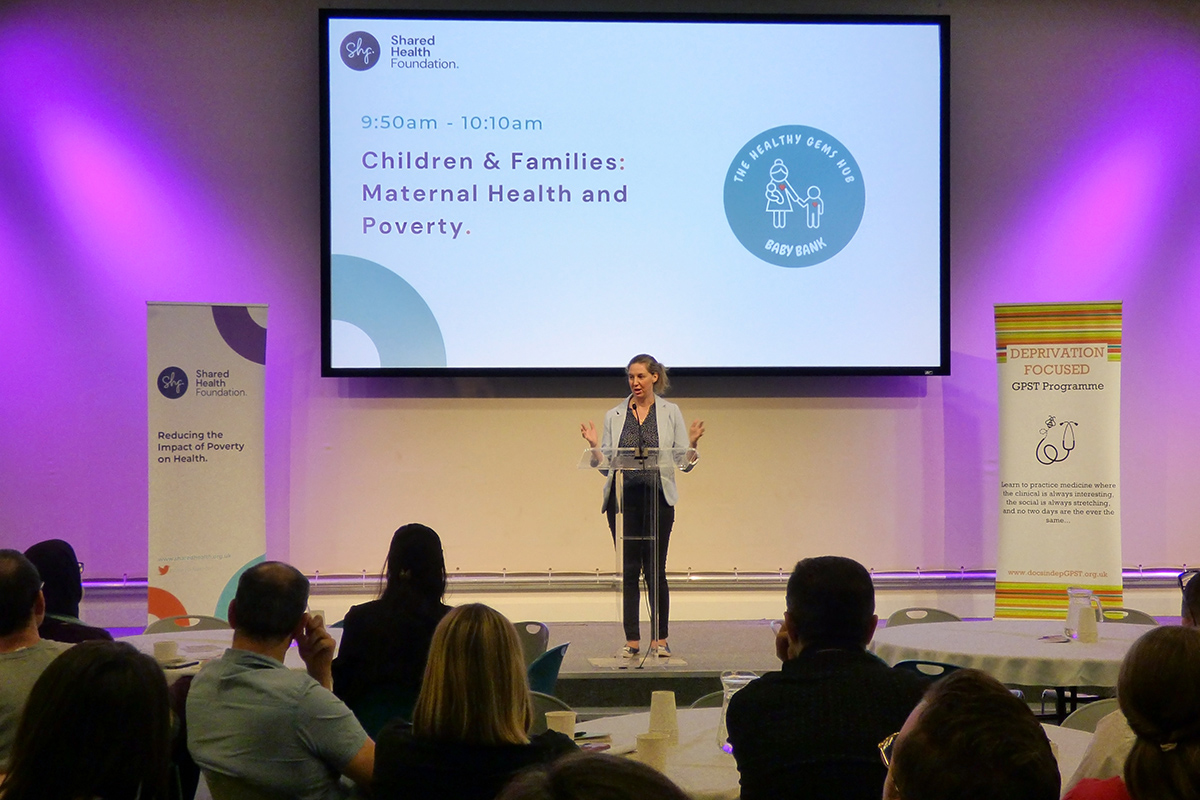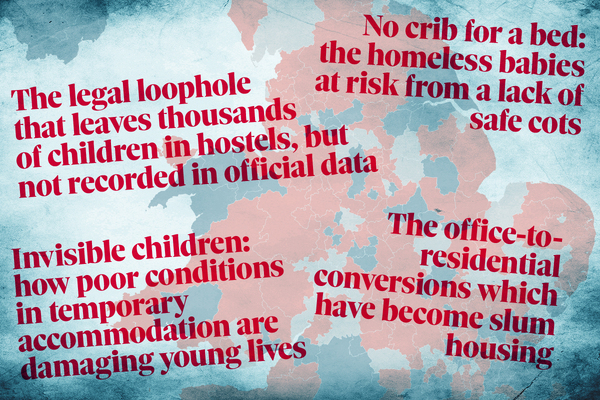You are viewing 1 of your 1 free articles
The Week in Housing: £1bn for councils to tackle homelessness, and a new devolution deal
The Week in Housing is our weekly newsletter, rounding up the most important headlines for housing professionals. Sign up below to get it direct to your inbox every Friday
Good afternoon.
In the biggest news of this week, English local authorities will receive nearly £1bn to tackle homelessness.
Angela Rayner, the deputy prime minister and housing secretary, called the funding announcement the “largest-ever investment” in homelessness.
The biggest slice – £633m – will go towards the Homelessness Prevention Grant, a £192m increase from this year. Our story breaks down the rest of the funding.
Councils and service providers have welcomed the funding. Adam Hug, housing spokesperson at the Local Government Association, said it would “relieve some of the financial burden” councils are under.
Charity Homeless Link also welcomed the announcement, but asked councils to move swiftly to confirm their contracts with homelessness service providers.
This comes as Inside Housing and Homeless Link launched a new campaign: Reset Homelessness. The campaign is calling for a systemic review of homelessness funding beyond the scope of this one-year announcement.
At the heart of the campaign is a sobering report by Homeless Link that charts what has happened to homelessness funding over time. The organisation has found that 41% of service providers are at risk of having to close or reduce homelessness services due to financial pressures.
This is the cover story on our new issue, out this week.
One added pressure is the new rise in employers’ National Insurance contributions, which this week charities have warned could lead to the closure of homelessness services if they are not exempt. Jools Ramsey-Palmer, chief executive of Ipswich Housing Action Group, told Inside Housing how the added cost will impact the charity, which provides a homelessness hub six days a week and some accommodation for people experiencing homelessness.
Ms Ramsey-Palmer said: “Staff are my greatest asset, because the nature of the people we work with is really complex, so that’s why we have a higher number of staff to volunteers. And that, of course, is my biggest expense in terms of staff costs.”
She added that the National Insurance contribution increase will cost the charity £16,000. “And, of course, our hub is a free-to-access service, so I’ve got no end consumer that I can pass that on to,” Ms Ramsey-Palmer said.
After homelessness, the next biggest news story of the week was devolution. Ms Rayner published a white paper proposing new “strategic authorities” and giving more power to regional mayors. The government is hoping the shake-up will help it deliver on its target of 1.5 million homes.
The government is also consulting on further changes that could make it cheaper for councils to buy land where social and affordable housing is being built.
Homes England has urged house builders to sign up to a new database to list Section 106 developments they are struggling to sell.
Developers have been complaining since the summer about not being able to find housing associations to buy their Section 106 homes. Our story from August uses data from housing association development teams, and is a must-read in terms of understanding what is really going on with Section 106.
Meanwhile, the Regulator of Social Housing (RSH) found “multiple errors” in rent-setting at one Midlands landlord.
This week also saw the English regulator issue governance downgrades to two other housing associations.
Figures from the RSH also revealed that social landlords still have more than 500 buildings with life-critical fire safety defects, and no clear remediation plans. Landlords reported that work is complete on only 144 affected buildings, which is around 7% of the total.
The Ministry of Defence has struck a deal to buy back 36,000 military homes from a private equity firm for £6bn. This brings to an end a story that began in 1996, when 55,000 homes were sold by the then-Conservative government. Since then the government has been renting them back and covering all maintenance costs, so the deal is expected to produce considerable savings.
The financial picture for housing associations is sure to be one of the biggest stories next year, and we got some more information from Scotland on how this will pan out.
Turnover at Scottish housing associations is expected to rise to more than £1.9bn, according to new projections by the Scottish Housing Regulator (SHR), which has examined the five-year plans of the country’s landlords.
One other interesting figure from the story relates to the expected costs of decarbonisation. The SHR said estimated decarbonisation costs up to 2030 could range from £4.8bn to £9.6bn, while landlords’ projections include just £154.6m.
Meanwhile, Clarion’s half-year financial results came out, showing that its surplus nearly doubled. Our story goes into how.
A merger between two housing associations has completed, creating a new 37,000-home landlord.
There have been a slew of senior appointments this week, including a new chief executive at one association and a new operations director at Southern Housing, while another senior executive has made the move from Sovereign Network Group to Vivid.
Northern Ireland’s infrastructure minister announced £19.5m in extra funding to connect new homes to water and sewerage networks. This might free up some of the 19,000 homes in Northern Ireland which, according to the construction sector, are being held up by lack of connection to wastewater.
Finally, if you want to finish the year with something from outside our usual coverage of UK housing, you could do worse than read Jules Birch’s analysis of the elections in Ireland. He looks at how Ireland is driving towards a fast pace of housing construction, and how it has introduced a new tenure called ‘cost rental’, which is meant to fill the gap between social housing and the private sector.
See you in 2025.
Jess McCabe, deputy editor, Inside Housing
Editor’s picks: five stories you might have missed
Homeless, vulnerable, but not a priority
A night shelter for trans people struggles to find funding
Are we equipped for an ageing population in affordable housing?
How many toddlers and babies are living in temporary accommodation in the UK?
When small meets large – making a merger work for both parties
Sign up for our Week in Housing newsletter
Already have an account? Click here to manage your newsletters











